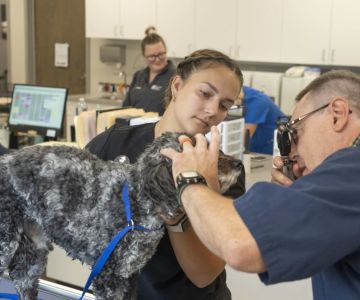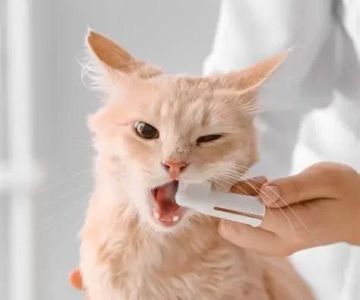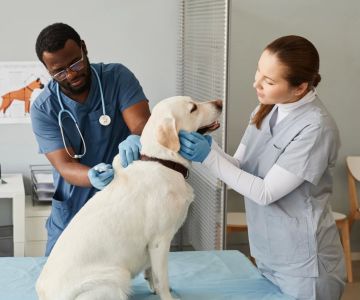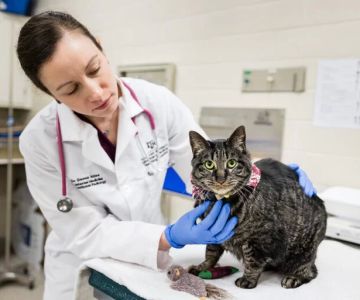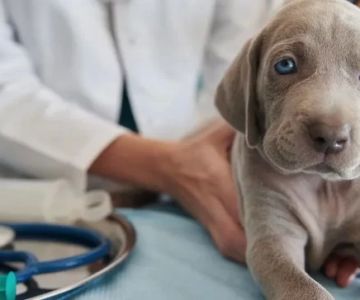Understanding What GPA Is Needed to Be a Veterinarian: Key Insights for Aspiring Students
- 1-Veterinary-School-GPA-Requirements
- 2-Importance-of-GPA-in-Veterinary-Admissions
- 3-Realistic-GPA-Goals-for-Vet-School-Aspirants
- 4-Balancing-GPA-with-Other-Admission-Criteria
- 5-Success-Stories-and-Personal-Experiences
- 6-Tips-to-Improve-GPA-for-Veterinary-School
1. Veterinary School GPA Requirements
The question “what GPA is needed to be a veterinarian” is one that many pre-vet students ask early in their academic journey. Generally, veterinary schools in the United States seek candidates with a strong academic record, often requiring a minimum GPA of around 3.0 to 3.5 on a 4.0 scale. However, because veterinary programs are highly competitive, successful applicants tend to have GPAs closer to 3.5 or higher, especially in science courses.
Each veterinary school sets its own GPA standards, and some may weigh science GPA more heavily than overall GPA. This reflects the rigorous scientific curriculum students will encounter in veterinary medicine.
1.1 Variability Across Schools and Programs
Some top-tier veterinary schools may expect applicants with GPAs above 3.7, while others may be more flexible depending on other factors such as clinical experience or extracurricular involvement. Researching the specific requirements of target schools is essential for setting accurate expectations.
2. Importance of GPA in Veterinary Admissions
GPA is a critical factor because it provides admissions committees with a standardized measure of academic ability and work ethic. A strong GPA demonstrates a student's capability to handle the demanding coursework of veterinary school. While a high GPA does not guarantee admission, a low GPA can significantly hinder chances.
Veterinary programs also consider GPA trends—showing improvement over time can offset a lower starting GPA, indicating resilience and growth.
2.1 GPA as Part of a Holistic Review
Admissions decisions are not made based solely on GPA. Committees review letters of recommendation, veterinary experience, personal statements, and interview performance. However, GPA remains a foundational benchmark that sets candidates apart.
3. Realistic GPA Goals for Vet School Aspirants
Setting realistic GPA goals is vital. Aspiring veterinarians should aim for at least a 3.5 GPA overall, with science GPA at or above this level. Meeting or exceeding these goals improves competitiveness and builds confidence.
It’s important to remember that maintaining a high GPA requires consistent effort, strong study habits, and sometimes seeking academic support early.
3.1 Balancing GPA with Work and Life
Many students juggle work, volunteering, and family responsibilities alongside academics. Finding balance while maintaining a competitive GPA is challenging but achievable with good time management.
4. Balancing GPA with Other Admission Criteria
Beyond GPA, gaining hands-on veterinary experience through internships or volunteering is crucial. Schools value well-rounded applicants who demonstrate passion and practical knowledge. Strong recommendation letters from veterinarians and professors further enhance an application.
Personal statements allow applicants to explain their motivation and unique qualities, which can sometimes compensate for a slightly lower GPA.
4.1 Interviews and Extracurricular Activities
Interviews assess interpersonal skills and professionalism. Participation in clubs or leadership roles can also strengthen an application by showing commitment and communication skills.
5. Success Stories and Personal Experiences
Jessica, who graduated with a 3.4 GPA, shared how she enhanced her veterinary school application by volunteering at animal shelters and shadowing veterinarians. Her well-rounded application earned her admission to a competitive program. Her story highlights how GPA, while important, is part of a bigger picture.
Conversely, Mark, who maintained a 3.8 GPA but lacked hands-on experience, faced challenges in admission, emphasizing the need for balance between academics and practical exposure.
5.1 Learning from Different Paths
These examples show that while the question “what GPA is needed to be a veterinarian” is essential, students should also focus on developing comprehensive profiles that showcase their readiness for veterinary school.
6. Tips to Improve GPA for Veterinary School Applicants
Improving GPA requires strategic effort. Students can:
Prioritize difficult science courses early to build a strong foundation.
Utilize campus resources such as tutoring and study groups.
Develop consistent study routines and seek feedback from professors.
Retake courses if necessary to boost grades.
Setting academic goals, staying motivated, and maintaining mental health are also crucial components.
6.1 When to Seek Professional Guidance
Consulting with academic advisors or pre-veterinary mentors can provide personalized strategies to improve GPA and strengthen veterinary school applications.
Ultimately, understanding what GPA is needed to be a veterinarian helps set clear goals, but combining strong academics with practical experience and passion is the key to success. For resources on preparing for veterinary school, including study aids and guidance, exploring trusted platforms can provide valuable support to aspiring veterinarians on their journey.



